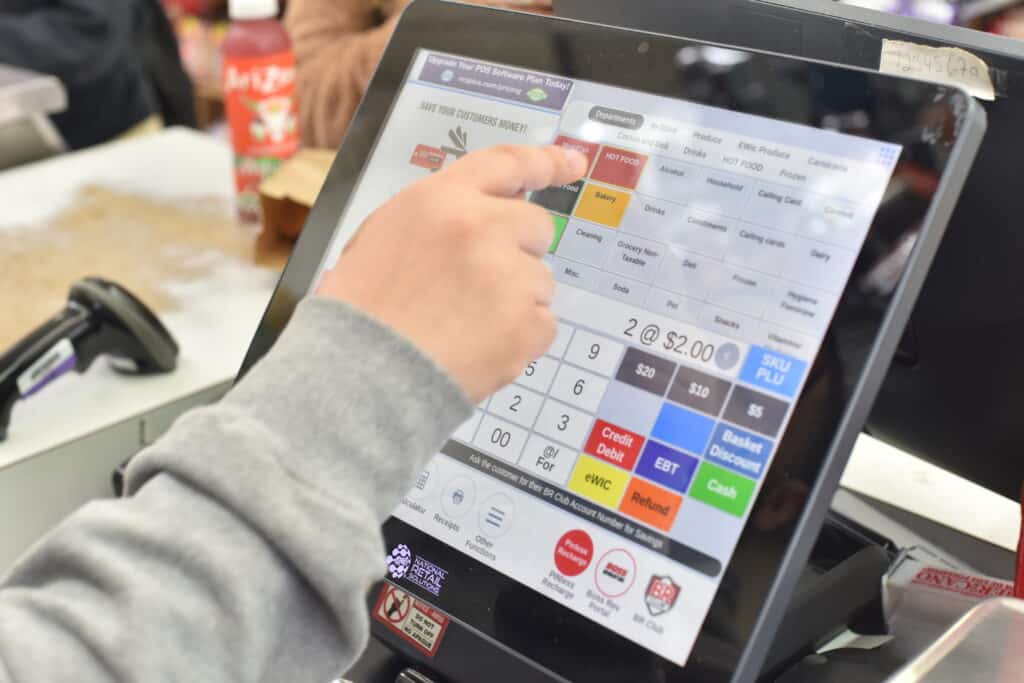By managing and planning effectively, you can increase revenue and success in your small business. This entails taking the time to assess and brainstorm what would be beneficial for your business, which leads to the need for time management skills to ensure that every task and occurrence at your store is handled correctly. By you and your employees having these skills will not only make the store more organized but will also make it run more smoothly in the long run. As the saying goes, you must ensure that you and your staff work smart, not just hard.
A lack of staff allocated during these times can mean frustrated customers who can’t find the team on the sales floor to help them find goods they would purchase. They may also not see an item they want on the shelf. You may have the product, but it’s sitting in the stockroom because there’s no one to bring it out. Profit can also be drained when you assign too many employees to work during downtimes.
Setting clear goals also means arranging and listing the most important and minor duties. There is always a temptation to go for the low-hanging fruit – in this case, the easiest but not necessarily most important job. But you must leave the least important tasks for last. Think about which tasks must get done first, such as stocking shelves in need of replenishment and changing displays and endcaps to replace items that are no longer on sale with current discounts. Duties with even less timely consequences should be last on your list.
Busy times at your store are directed by the seasons, special occasions, and holidays. If your store sells summertime items such as beachwear and sunscreen, then you must plan to use time management most effectively in the summer. This means getting out all the summer items before the season starts and putting out last season’s products on sale to make more room in your store.
When the store seems chaotic, it is advisable to have your staff be on their toes and look for any consumer who may need help finding an item. It would be best to use a Point of Sale (POS) system with an advanced inventory tracker to make it easier for staff to find a product in stock. The system can also show you when sales are the greatest on which days and at what times. This can also be useful in the long run to show what days employees may need to plan ahead of time to stock those particular items.
In terms of inventory management, this can be done on an advanced POS system instead of manually calculating what inventory needs to be restocked. This can be a waste of time and effort. Stocking the shelves is quite simple. Employees should be able to go up and down the aisles and see what needs to be organized and restocked on those shelves; having empty shelves does not make your business look like it is on top of its game.
Finally, have your employees work as a team to complete all necessary tasks. Working as a team has numerous advantages, including facilitating ideas, creativity, and productivity, enhancing employee morale, learning from one another, and reducing stress. When employees are happy, their skills and motivation improve, resulting in better business.
Importance of Time Management In A Small Business
To start, you may want to create a list of tasks that need to be completed while also keeping in mind what should be prioritized. Doing this gives you more free time after work and improves your work-life balance. When it comes to your employees, understaffing or overstaffing is an example of negative time management. If a small business owner fails to plan for busy times in the store, they may not have enough employees to carry out top customer service and restock supplies.A lack of staff allocated during these times can mean frustrated customers who can’t find the team on the sales floor to help them find goods they would purchase. They may also not see an item they want on the shelf. You may have the product, but it’s sitting in the stockroom because there’s no one to bring it out. Profit can also be drained when you assign too many employees to work during downtimes.
Set Clear Goals
To meet time management goals, a small business owner must plan ahead. Whether a week, a month, or even the night before, inputting a list of goals is essential to planning a schedule and exceeding profit margins. For instance, put together a task monitor of what must be accomplished the day you receive a big, weekly shipment of items. Use time efficiently by organizing the stockroom and employees to work as a team, moving products to the stockroom and directly to the sales floor.Setting clear goals also means arranging and listing the most important and minor duties. There is always a temptation to go for the low-hanging fruit – in this case, the easiest but not necessarily most important job. But you must leave the least important tasks for last. Think about which tasks must get done first, such as stocking shelves in need of replenishment and changing displays and endcaps to replace items that are no longer on sale with current discounts. Duties with even less timely consequences should be last on your list.
Understanding Busy Times at Your Stores
Effective small business time management is tied to understanding the busy times at your stores. For instance, the night before Black Friday is a time for small businesses to pay extra money to have employees stay late. Ideally, shelves should never be bare, no matter how quickly items sell, and this will only lead to customers leaving and heading to your competitors.Busy times at your store are directed by the seasons, special occasions, and holidays. If your store sells summertime items such as beachwear and sunscreen, then you must plan to use time management most effectively in the summer. This means getting out all the summer items before the season starts and putting out last season’s products on sale to make more room in your store.
When the store seems chaotic, it is advisable to have your staff be on their toes and look for any consumer who may need help finding an item. It would be best to use a Point of Sale (POS) system with an advanced inventory tracker to make it easier for staff to find a product in stock. The system can also show you when sales are the greatest on which days and at what times. This can also be useful in the long run to show what days employees may need to plan ahead of time to stock those particular items.
Delegate Work Properly
When delegating tasks to your employees, you must train your team beforehand to ensure they know how to do every task handed to them. For example, you may need to train each employee to manage a POS system, inventory, stocking the shelves, customer service, and work as a team. If an employee does not know how to use a POS system, you can have other team members train those employees so that you can focus on other tasks.In terms of inventory management, this can be done on an advanced POS system instead of manually calculating what inventory needs to be restocked. This can be a waste of time and effort. Stocking the shelves is quite simple. Employees should be able to go up and down the aisles and see what needs to be organized and restocked on those shelves; having empty shelves does not make your business look like it is on top of its game.
Finally, have your employees work as a team to complete all necessary tasks. Working as a team has numerous advantages, including facilitating ideas, creativity, and productivity, enhancing employee morale, learning from one another, and reducing stress. When employees are happy, their skills and motivation improve, resulting in better business.








